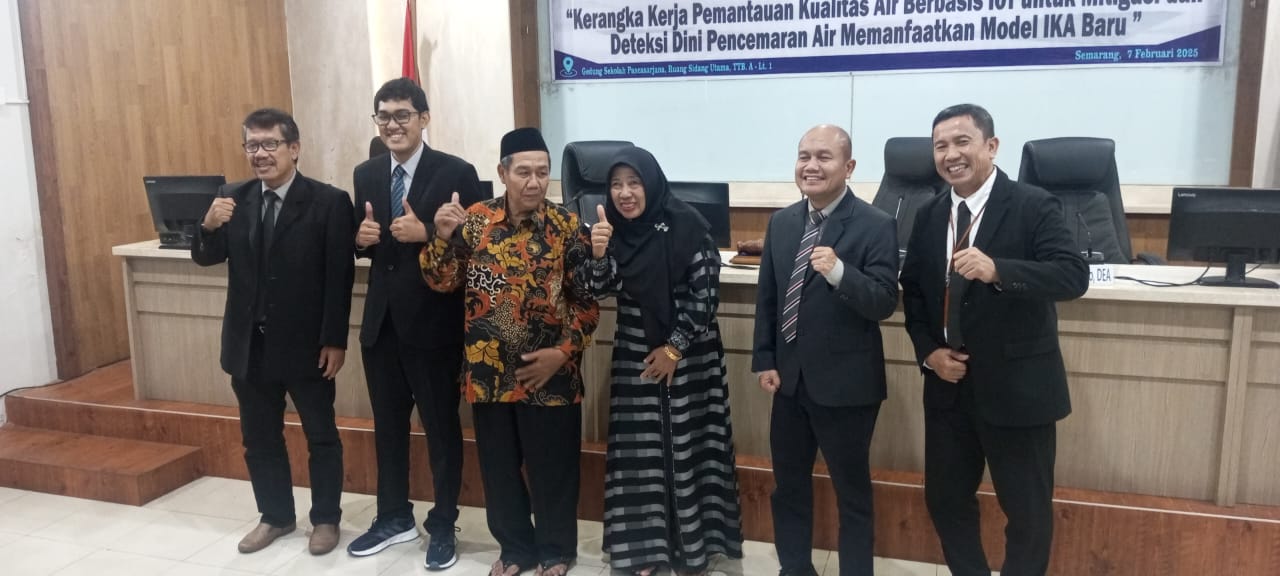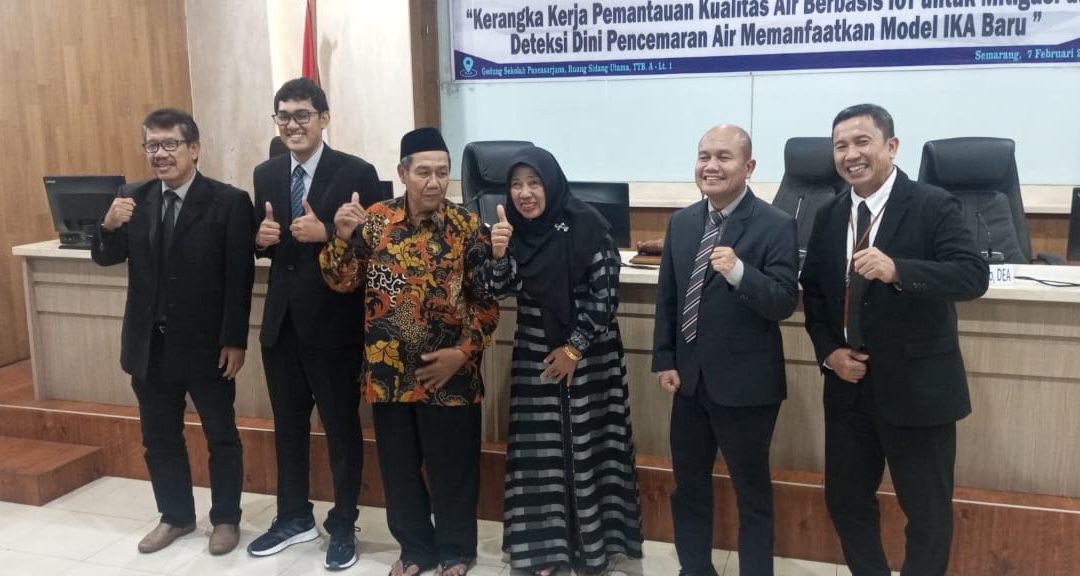Wibowo Harry Sugiharto carried out dissertation research with the title “IoT-Based Water Quality Monitoring Framework for Mitigation and Early Detection of Water Pollution Using the New IKA Model” and led him to obtain a Doctorate degree at Undip’s Information Systems Doctoral Study Program (DSI).
Dr. Wibowo Harry Sugiharto, S.Kom, M.Kom successfully achieved a doctorate after defending his dissertation in an open examination in front of examiners at the Undip Postgraduate Building on Friday, February 7 2025.
Acting as an examiner for Prof. Dr. rer. Nat. Heru Susanto, ST, MM, MT (Promoter ) Agung Budi Prasetijo, S.T., M.IT, Ph.D (Co Promoter) Prof. Ir. Muhammad Nizam, S.T., M.T., Ph.D., IPM (External Examiner / Sebelas Maret University Surakarta) Prof. Dr. Ir. Purwanto, DEA. (Examiner 1 ) Dinar Mutiara Kusumo Nugraheni, S.T., M.InfoTech.(Comp)., Ph.D. (Examiner 2), and Prof. Dr. Rahmat Gernowo, M.Si (Head of Information Systems Doctoral Study Program).
According to Dr. Wibowo Harry Sugiharto, S.Kom, M.Kom that this dissertation discusses the development of an IoT framework based on mathematical models for real-time monitoring of water quality.
“This research proposes a new water quality index (IKA) model which includes five main steps, namely IoT system development, integration of the IKA model with real-time sensor data, data normalization using Gaussian and polynomial curve fitting, parameter weighting using the AHP method, and system integration testing,” said Dr. Wibowo Harry.
that this dissertation discusses the development of a mathematical model-based IoT framework for real-time water quality monitoring.
“This research proposes a new water quality index (IKA) model which includes five main steps, namely IoT system development, integration of the IKA model with real-time sensor data, data normalization using Gaussian and polynomial curve fitting, parameter weighting using the AHP method, and system integration testing,” said Dr. Wibowo Harry.
“The research results show that the Gaussian model has an accuracy of 97.54% and an execution time of 83.55% faster than linear interpolation, while parameter weighting with AHP shows that the grouping approach is more consistent with a consistency ratio of 0.02 compared to individual 0.08,” he added.
The integration trial succeeded in acquiring 6,779 data and proved that the system was able to detect changes in water parameters effectively for pollution mitigation.
The application of IoT technology in water quality monitoring enables real-time change detection, supporting better decision making and thus accelerating mitigation of worsening environmental conditions.
Dr. Wibowo Harry added that mathematical models such as the Water Quality Index or IKA have several main advantages. This model is light, transparent and flexible, making it easy to adapt to various needs. Additionally, it does not require large datasets or heavy computing infrastructure, making it more efficient than learning-based methods.
The Water Quality Index (IKA) plays an important role in providing a comprehensive assessment of water quality conditions through the integration of physical, chemical and biological parameters. To date, more than 35 IKA models have been implemented in various countries as an important tool in water resources management.


